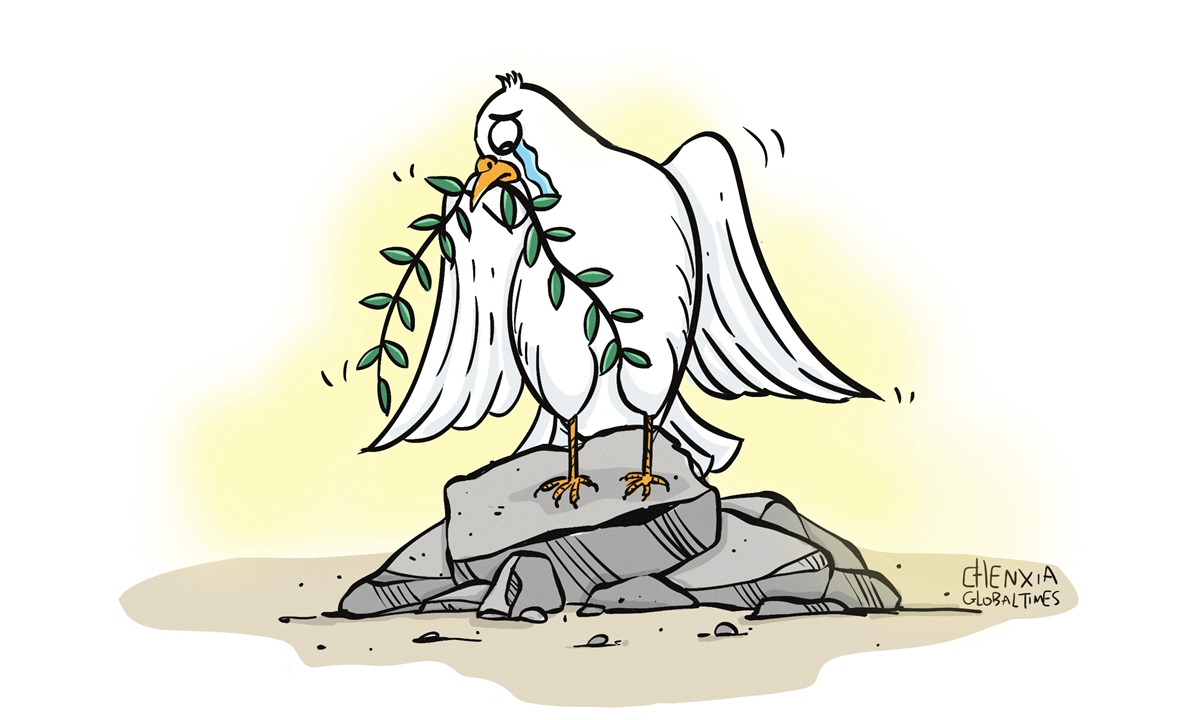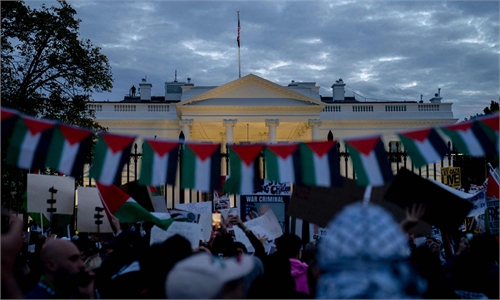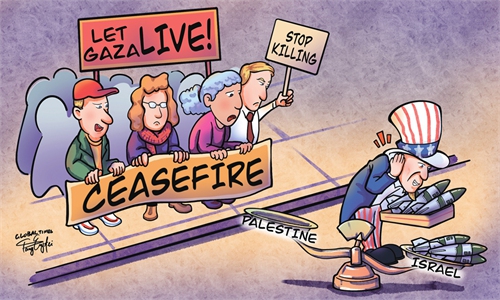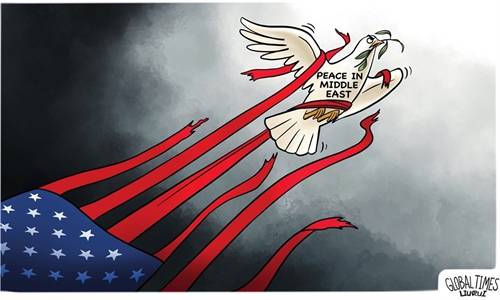
Illustration: Chen Xia/GT
The Palestine-Israel conflict has once again become the focus of international attention. Since the outbreak of the Palestine-Israel conflict, EU leaders and their member states have frequently voiced their opinions. However, the lack of consensus within EU institutions exposes the growing divisions within the EU on regional hot-button issues.The Middle East has long been one of the strategic priorities for the EU, as the security and stability of the region are crucial to the EU's strategic interests. The EU has been active in Middle East and North Africa affairs, actively supporting the resolution of the Palestine-Israel conflict. Additionally, the EU has promoted the P5+1 mechanism, becoming a key actor in dialogue, cooperation and resolution of the Iranian nuclear issue. However, the EU is also prone to having strategic divergences on Middle Eastern issues. For example, during the Iraq War, there was a division between "Old" and "New" Europe within the EU. Therefore, the resolution of issues in the Middle East region becomes a test for whether the EU can exert global influence and have an independent impact.
There are differences between the European Commission and the Council of the EU. European Commission President Ursula von der Leyen visited Israel on October 18 to show support for Israel. However, the European Council held a leaders' meeting on October 26, emphasizing the EU's efforts to contribute to a political process based on a two-state solution and calling for the prompt convening of an international peace conference on the Palestine-Israel conflict. Additionally, in the face of the Palestine-Israel conflict, the EU High Representative for Foreign Affairs and Security Policy, Josep Borrell, believes that "Israel has the right to defend [itself], but it has to be done according to the right of international law." This view differs from von der Leyen's "biased" support for Israel. Von der Leyen's position has caused dissatisfaction among EU member states.
The new round of conflict between Palestine and Israel poses new challenges to the region and the world. Against the backdrop of the ongoing impact of the Russia-Ukraine conflict on European security order, the security and stability of the Middle East region has undoubtedly become a new test for the EU in dealing with its neighboring issues, as well as the coordination between crisis management and military capabilities.
After the outbreak of the Russia-Ukraine conflict, the weakness of the EU in safeguarding its own security order was exposed. The EU's security agenda is constrained and even dominated by the US, which strengthens the security confrontation with Russia and puts it in a dilemma. Currently, the Palestine-Israel conflict exacerbates the strategic dilemma of the EU. On the one hand, the EU hopes to maintain its influence in the Middle East and promote a "European approach" to the solution. On the other hand, the US wants to maintains its alliance with Israel and promote its hegemony in the region. At the same time, some Europeans, linking the Russia-Ukraine conflict to the Palestine-Israel conflict, believe that the two conflicts put the EU at risk of "fighting on two fronts."
The Palestine-Israel conflict has regional implications. A ceasefire and a peaceful resolution are urgently needed. In order to prevent the conflict from spreading and becoming a regional conflict, European leaders have strengthened communication with countries such as Egypt and Jordan, in addition to visiting Israel. China particularly hopes to enhance cooperation with the EU on global governance and regional hotspots, respecting the EU's status as an important global actor, and aiming to achieve peace and stability in the Middle East. In the current round of the Palestine-Israel conflict, the EU should strengthen communication and exchanges with regional countries based on the "two-state solution" within the framework of the UN and promote a just resolution of the Palestinian issue while strengthening the endogenetic power that maintain security in the Middle East. Undoubtedly, the strategic wisdom of the EU is needed.
The author is a research fellow with the Institute of European Studies, Chinese Academy of Social Sciences. opinion@globaltimes.com.cn



